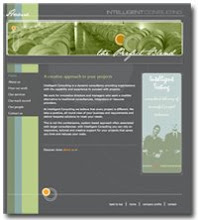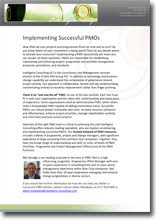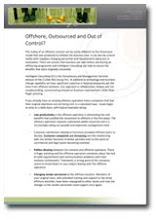A recent BBC article on the benefits of big data and social profiling in the recruitment process really got me thinking about what this brave new future holds for all involved when selecting the right people for the right job.
I admit, I’m usually skeptical of anything that is called the ‘next big thing’ in recruitment – especially when it is IT-based. This is because the ultimate test of people is, well, people, and quite frankly the development of this new ‘people analytics’, as it is known, only proves this fact.
Don’t get me wrong – I remember the painful days of hundreds of files and sifting endlessly through piles of paper trying to read and define what they contained. The advent of social media has changed this in recruitment, mostly for the better, and it’s right that systems should continue to develop and enhance these benefits.
However, it’s hard for me to believe that software will replace humans in selecting the best candidates for jobs in my lifetime.
This is not because humans don’t make mistakes. I’ve witnessed countless excellent candidates, with a variety of exciting attributes, being excluded via human screening functions. As a simple statement of fact, a CV cannot accurately reflect a candidate, causing many to be overlooked.
It’s rather that, given that these people-based mechanisms can be flawed, how can we expect a computer to do it any better?
The whole issue makes me think about two extremes of computers trying to represent humans – one designed to compete in a highly-structured game of chess, and one designed to imitate human interactions (those computers trying to beat the Turing Test). The Turing Test, named after one of the world’s most brilliant mathematicians, Alan Turing, was developed to see if software could fool human beings in to thinking that it was itself a human.
Chess has been a target for computing enthusiasts for a long time as the game has a finite number of possibilities, albeit an inconceivably high number, and a number of clearly defined rules that need to be followed. The most famous example of this is the 'Deep Thought' computer by IBM, which later became 'Deep Blue'. On the other hand, we have software trying to imitate human beings and defeat the Turing Test.
Most years there are contests to see which software is performing best in this regard. In 2014, the University of Reading ran one such contest, with the winning software fooling 33% of the human interrogators in a text based conversation which lasted five minutes. Such a short conversation cannot account for all the nuances of physical conversation and body language.
While elements of these two examples are successful, the comparisons only further convince me that a high-quality interview technique, combined with experience and sound emotional intelligence, are the only way to ensure that your recruitment process is the best that it can be and to minimise failure rates. People analytics will no doubt go on to play a major role in all our futures; their development demonstrates that HR, in conjunction with the business, needs to be involved in long-term strategy as opposed to fulfilling a process-led function. But to enable a world where the skills, personalities and jobs are matched, the actual issue that needs to be addressed is how the whole process happens culturally. There are no ‘quick fixes’ for this, no matter how technologically advanced it may appear.







No comments:
Post a Comment